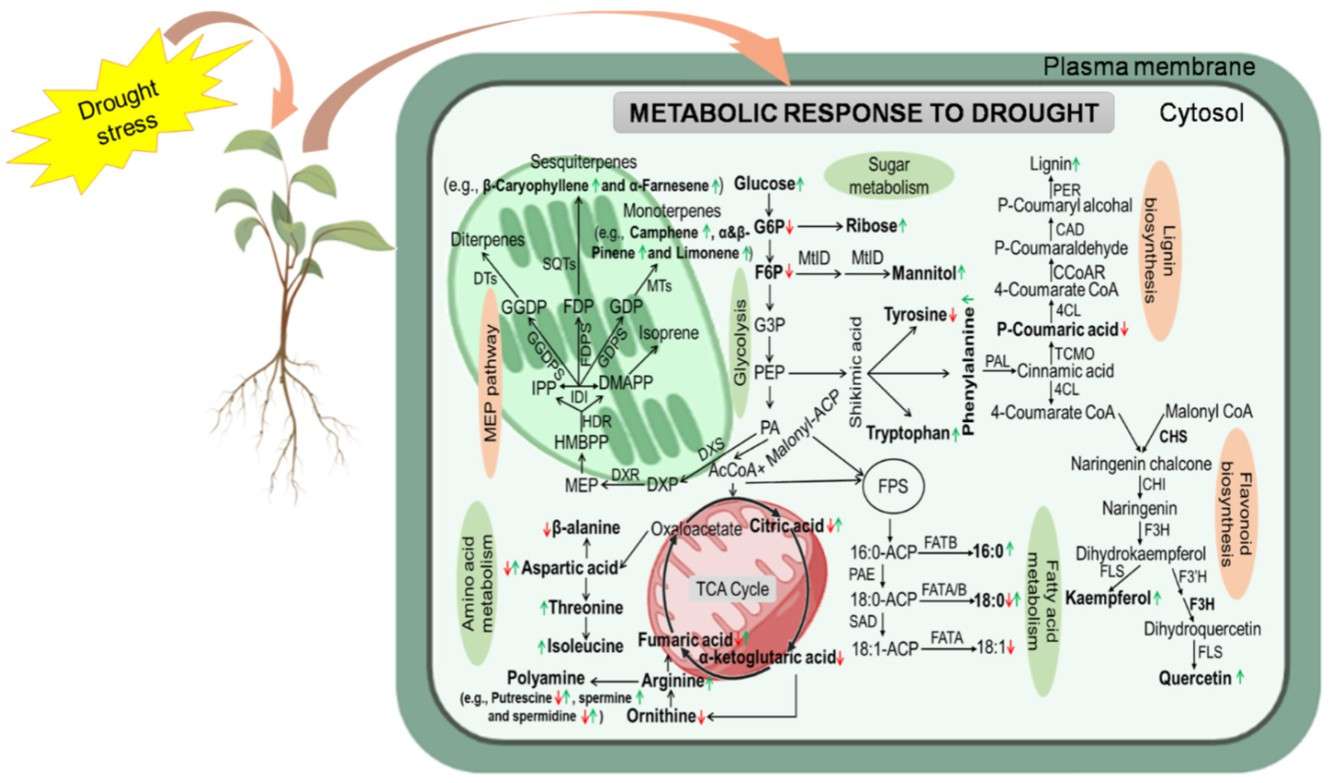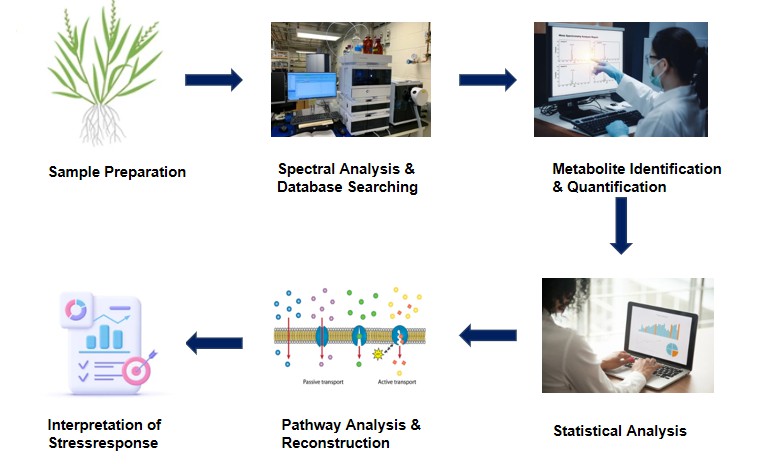The main challenges for forage production come from the reduction of three resources: water, nitrogen (N), and phosphorus (P). There is a variety of plant secondary metabolites in forage grasses that represent huge reservoirs with multiple functions. When forage is affected by abiotic stress, metabolism is deeply involved in signaling, physiological regulation, and defense responses. At the same time, in feedback, abiotic stress affects the biosynthesis, concentration, transport, and storage of primary and secondary metabolites. Metabolic adjustments in response to abiotic stressors involve fine-tuning of amino acid, carbohydrate, and amine metabolic pathways. This array of stress responses helps cells recover from stress-induced chemical and energetic imbalances and is critical for adaptation and survival. To study and map the metabolic responses that occur in forage grasses and to link these responses to specific abiotic stresses, an integrated and comprehensive metabolomic analysis is required.
 Fig.1. A schematic representation of metabolic response to drought stress. (Kumar M, et al., 2021)
Fig.1. A schematic representation of metabolic response to drought stress. (Kumar M, et al., 2021)
Abiotic stress induces polygenic responses that lead to specific regulation of primary and secondary metabolite accumulation. We have a variety of metabolomic technologies to analyze the metabolomics of abiotic stress tolerance mechanisms in forage grasses, primarily through the identification, characterization, and quantification of primary and secondary metabolites associated with abiotic stress tolerance in forage grasses to analyze the interactions of complex metabolic networks and the development of tolerance traits in forage grasses. We help our clients achieve the following goals:
Combining traditional metabolomics techniques, such as our mass spectrometry analysis and NMR and chromatographic separation steps, helps to improve the description of essential stress-related metabolites from the complex metabolite profile of forage grasses. In addition, metabolic/genetic engineering using metabolite biomarkers identify key metabolites with potential stress-resistant roles in forage grasses for the development of stress-resistant forages. As the ideal partner for forage metabolomics, Lifeasible offers customized solutions for metabolomic analysis of forage plant responses to abiotic stresses.
We offer metabolic and transcriptional profiling of forage grasses exposed to PEG-induced water stress. Our GC-MS metabolomic analysis of drought stress is not limited to the analysis of one or two classes of compounds important in the development of tolerance. Still, it provides an overview of the entire metabolic response to help our clients discover new metabolic phenotypes.
Plants require high amounts of nitrogen and phosphorus for optimal photosynthesis and nutritional growth. We provide transcriptomics and metabolic analysis services for the early response mechanisms of model forage grasses to phosphorus and nitrogen starvation.
 Fig.2. Schematic diagram showing the metabolomics workflow for elucidation of abiotic stress tolerance in forage plants.
Fig.2. Schematic diagram showing the metabolomics workflow for elucidation of abiotic stress tolerance in forage plants.
Our experts combine cutting-edge isolation and identification techniques to comprehensively characterize a large number of metabolites present in forages and identify potential biomarkers in metabolomics studies of forages in response to abiotic stresses. Lifeasible is one of the world's leading companies in forage metabolomics analysis. If you have any special requirements about our solutions, please feel free to contact us.
Reference
Lifeasible has established a one-stop service platform for plants. In addition to obtaining customized solutions for plant genetic engineering, customers can also conduct follow-up analysis and research on plants through our analysis platform. The analytical services we provide include but are not limited to the following:
STU-CRISPR System Improves Plant Genome Editing Efficiency
April 19, 2024
Application of Exosomes in Facial Beauty
April 12, 2024